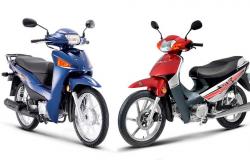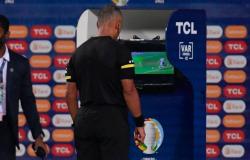
The technology multinational Power Electronics has launched an ultra-fast charger for trucks that will reduce charging time by 90%. According to the company, the device makes it possible for heavy electric vehicles, which face charging times of between 1.5 to 7 hours depending on the model and the infrastructure used, to charge their batteries from 10% to 80% in approximately 30 minutes.
Most car charging points in Spain have a power of 22 kW. In addition, there are a few ultra-fast ones with more than 250 kW. Those for trucks have a power of between 350 and 400 kW. Those manufactured by Power Electronics in its plant in Lliria (Valencia), with the MCS (Megawatt Charging System) charging system, reach 1,440 kW.
The first charging points will be installed in Murcia next July, and will be done by the company formed by Iberdrola and BP to create a high-speed public charging network. It will be located in the logistics base of Disfrimur, a company dedicated to the transportation and logistics of goods.
After this, Power Electronics has already closed other locations for the installation of more units in the Netherlands, France, Germany and Sweden, as indicated by company sources who consider that chargers with the MSC system are “a key solution for mobility.” from the future”.
The charging points allow the use of up to four vehicles, trucks or buses, simultaneously and adapts the recharging time to the mandatory rest time for truck drivers, which is 45 minutes every four and a half hours of driving.
Power Electronics is the leader in solar inverters for photovoltaic plants and energy storage. Its current commitment is to promote electrification and electric mobility on a global level. “Taking into account that these vehicle models produce at least 63% less emissions during their useful life compared to diesel vehicles, the implementation of the MCS system is the first step to achieve the expansion of a charging network for the medium and long distance transportation,” company sources have indicated.
Raúl Padierna, Chief Sales Officer of Power Electronics, has highlighted the emissions data of Spanish transport: “In 2022 alone, the Spanish transport sector emitted 90.46 million tons of CO2, being responsible for 28.4% of this figure. road transport. If we want to achieve the decarbonization objectives set by the EU, we have a very ambitious challenge ahead of us but one that, thanks to our MCS solution, is realistic given that we offer an effective alternative for companies with vehicle fleets.”
In the words of Pablo Pirles, general director of Iberdrola | bp pulse: “The electrification of heavy transport is a great challenge subject to large investments, greater technological innovation and with still low vehicle penetration. This milestone represents the first step towards the electrification of the Mediterranean road freight corridor, allowing long distance travel, a fact that will contribute to reducing emissions in the transport sector.”
Follow all the information Economy and Business in Facebook and xor in our weekly newsletter





